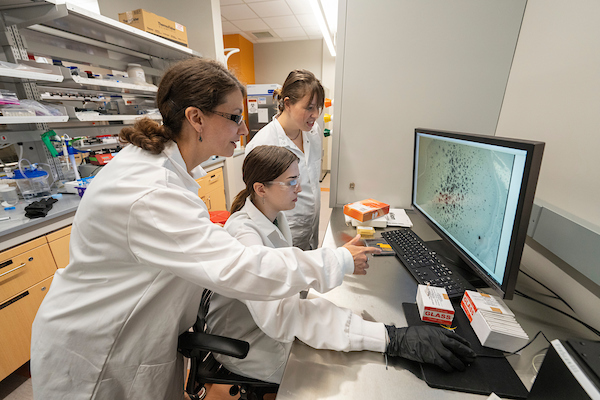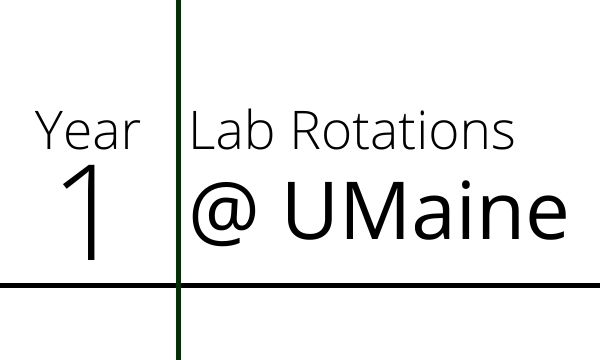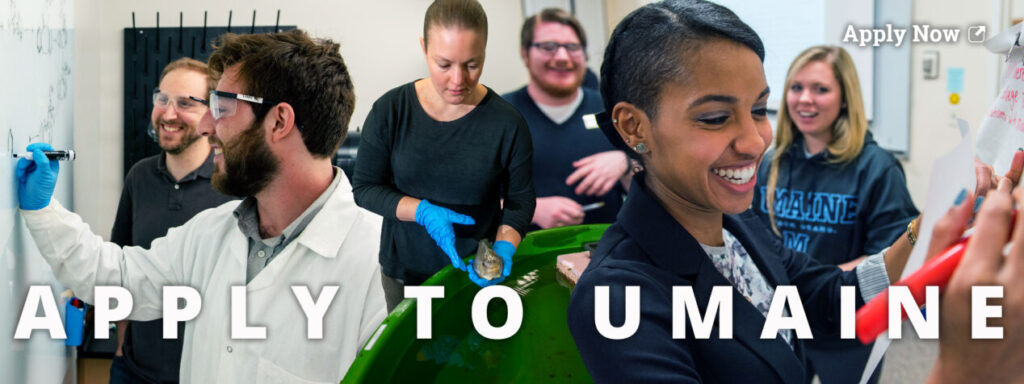GSBSE @ UM
GSBSE admissions track with first year rotations at the University of Maine

Overview
GSBSE @ UM is new admissions track into the UMaine GSBSE’s PhD in Biomedical Science and PhD in Biomedical Engineering that preserves GSBSE’s hallmark first year laboratory rotations within laboratories at UMaine, allowing students in the track to more deeply explore the research in a range of labs and develop their academic networks before committing to a home laboratory for the duration of the program.
The GSBSE @ UM connects affiliated faculty from over a dozen departments across the University and challenges students to make transdisciplinary connections. GSBSE affiliated faculty at UMaine receive research funding from a variety of external sources, including the NIH, NSF, FDA, and private industry.
In addition to its role as the degree granting institution of the GSBSE, UMaine is home to over 11,000 undergraduate and graduate students across over 200 degree programs and is the flagship campus of the University of Maine System. UMaine is also home to Maine’s only Division I athletics program

UMaine PhD Student Highlight:
Liza White, PhD, Biomedical Engineering
Hometown: Rumford, ME
Undergrad Institution: University of Maine
Undergrad major: Biomedical Engineering
Q: Can you tell us about your research focus? My research focuses on leveraging textured surfaces and engineered living materials to develop functional platforms for addressing challenges, including microplastic pollution and aqueous contaminant remediation
Q: What do you appreciate the most about being a PhD student at UM or in GSBSE? At UMaine, I value the strong and supportive academic community that has guided me throughout every stage of my Ph.D. journey as I explore and define my research path. I also appreciate the easy access to outdoor activities and scenic trails, which provide a vital balance between rigorous academic work and personal well-being.
Q: What advice would you give to your younger self or any aspiring PhD students who are trying to decide between graduate programs? When selecting a Ph.D. program, prioritize choosing the right principal investigator (PI) or advisor over the specific research project or even the prestige of the program itself. Your advisor will significantly shape your graduate experience—both academically and personally. It’s essential to find a mentor whose advising style aligns with your learning preferences, communication needs, and professional values. A supportive and collaborative advisor-mentee relationship can be the cornerstone of a successful and fulfilling doctoral journey.
Questions?
Email gsbse@maine.edu




